Kingston’s Food Policy Bites
Issue 5: June 2025
Hello! Welcome to the fifth edition of Kingston’s Food Policy Bites! This edition will be a little unique. Typically the structure of each Food Policy Bites provides a narrative that asks a thought-provoking question through which to learn about a specific food policy topic, including a bit of history and technical details followed by application to Kingston, before answering the question with a Food Policy Takeaway.
However, with so much happening so quickly in the food policy world, this time we wanted to provide you with the tools, platforms, and other resources to understand all topics related to food policy in our ever-changing food system right now. We’ll summarize a few of the tools, applying some of their recent updates to topics that hit home in Kingston to keep that local connection you like. Scroll down to learn about the following resources:
- Civil Eats Food Policy Tracker
- Food Fix
- Center on Budget and Policy Priorities
- Healthy Food Policy Project
- Even More Policy Trackers & Resources
Find it here: https://civileats.com/food-policy-tracker/
About Civil Eats: Civil Eats is an independent, award-winning news site that covers the American food system, including topics of intersectionality of food and other significant social and political issues.
About the Food Policy Tracker: Launched in 2025, this tracker lets you search for posts related to actions taken by the president, federal agencies, and Congress that directly relate to or have significant implications for the food system. Tags include words and phrases like Nutrition, Farmers, Local Food, School Food, and more.
Civil Eats is one of the best news sources for food systems-related news. They post frequently, sometimes daily, about a wide variety of food topics.
So What About Kingston?
As a small city nestled in a rich agricultural region, many if not most of these stories can connect to life in Kingston. For example:
June 12, 2025- Senate Ag Committee Proposes Significant, but Smaller, Cuts to SNAP
This article summarizes the Senate Agriculture Committee’s proposed text for the federal budget reconciliation bill, which would impact Kingston starting October 1, 2025. The Senate’s plan cuts $209 million from SNAP. For a connection to home, one in 10 households use SNAP in Ulster County, and in some neighborhoods in Kingston that can go up to one in 4 (read this previous Food Policy Bite for more information on SNAP).
It also eliminates funding for SNAP-Ed. SNAP-Ed in Kingston funds free community and school nutrition education, and is one of the funding sources for the Creating Healthy Schools and Communities (CHSC) grant. For more information on SNAP-Ed, here is a link to a statewide impact report and here is the CHSC Year 3 Impact Report.
The Senate’s bill also increases spending on farm bill programs including commodity payments, crop insurance, and conservation programs, although strips the funding of its original designation for climate-smart practices.
Find it here: https://foodfix.co/
About Food Fix: Food Fix is a weekly newsletter from award-winning reporter Helena Bottemiller Evich, who previously led food and agriculture issues at POLITICO for nearly a decade. Helena both reports on food-related news happening in Washington DC, as well as provides contextual groundsetting, commentary, and analysis based upon her 16 years of experience in covering the topics. She works to make it both informative for professionals as well as approachable for consumers.
So What About Kingston?
The most recent newsletter shared was also about the Senate’s cuts to SNAP. This dives into where the cuts will be coming from, such as increasing work requirements, which studies have shown are not effective in increasing adults actually working as they do not address the underlying barriers to obtaining livable wage jobs, and shifting cost shares to states, and how that will impact tough decisions states will have to make regarding their budgets in the future. At the end, she provides her analysis of the situation, including some historical context that led to the situation, and what might happen going forward.
Another recent issue, MAHA commission report under fire over fake citations, reports on fake studies that were referenced in the Make America Healthy Again report that was recently released. This report is relevant to Kingston as it could have big implications on federal nutrition standards and priorities that govern things like school meals and food pantry nutrition programs; or not, considering the reduction in funding for programs that support nutrition education and access to nutritious foods. Again, Food Fix has a detailed analysis on that.
Find it here: https://www.cbpp.org/newsletter/signup/update
About Center on Budget and Policy Priorities: The Center on Budget and Policy Priorities (CBPP) is a “nonpartisan research and policy institute that advances federal and state policies to help build a nation where everyone — regardless of income, race, ethnicity, sexual orientation, gender identity, ZIP code, immigration status, or disability status — has the resources they need to thrive and share in the nation’s prosperity.”
They cover numerous topics, some directly related to food, like food assistance, and some more tangentially but still importantly related, such as immigration and the economy. In addition to having a virtual newsletter, they also have a series called “Policy Basics” which gives a brief background on topics like the federal budget, taxes, and government assistance programs.
So What About Kingston?
CBPP differs from the others in that it reports on budgets and taxes overall, not just those exclusively related to food.
For example, their most recent newsletter covers the impact of the House-passed reconciliation bill on health care coverage for Americans. Millions of people would lose their health insurance coverage because of proposed cuts to Medicaid and changes to the Affordable Care Act, which means they would lose both preventative care as well as care for life-threatening conditions and chronic diseases.
Medicaid provides health care coverage for low-income children, families, seniors, and individuals with disabilities, including many here in Kingston.
Find it here: https://healthyfoodpolicyproject.org/
About Healthy Food Policy Project: Healthy Food Policy Project is a collaboration of the Center for Agriculture and Food Systems at Vermont Law School (CAFS), the Public Health Law Center (PHLC), and the Rudd Center for Food Policy and Health at the University of Connecticut, funded by the National Agricultural Library, Agricultural Research Service, U.S. Department of Agriculture.
It is not a real-time tracker of changing local, state, and federal policies. Instead, it is can be viewed more as a food policy resource and database. There are 605 coded laws catalogued in its Policy Database, along with food systems frameworks and case studies to help those who want to get food systems projects started, but aren’t interested in starting from scratch.
So What About Kingston?
The database has been a wealth of information in doing research for both these Food Policy Bites, as well as informing strategies and tactics highlighted in the upcoming Food Systems Plan.
A Note on the Food Systems Plan: After a strategic pause to reflect and make updates, followed by some unavoidable delays, the Food Systems Plan is back on track! It is currently with a graphic designer for a beautification pass that will also increase its inclusivity and intuitiveness through design. A public comment period to come later this year, exact timing TBA. Follow along at https://engagekingston.com/food-system-plan for more updates.
Even More Policy Trackers & Resources
|
Resource Name |
Link |
Brief Description |
|
UCONN Rudd Center for Food Policy and Health Resources |
The Rudd Center for Food Policy and Health is a research center focused on solutions to food insecurity, poor diet quality, and weight bias. This is a database of both research and other communications type materials. |
|
|
Food Systems Collaborative Food Policy Debrief |
A monthly breakdown of top food stories, policy movements, recommendations for how you can be involved, and a social impact spotlight. |
|
|
The HEAL (Health, Environment, Agriculture, Labor) Food Alliance Newsletter |
The HEAL Alliance is a national multi-sector, multi-racial coalition of 55 organizations representing over 2 million rural and urban farmers, ranchers, fishers, farm and food chain workers, indigenous groups, scientists, public health advocates, policy experts, community organizers, and activists transforming our food system. |
|
|
Alliance to End Hunger’s Key Bill Tracker |
This is a policy tracker that keeps up to date information related to bills that align with the Alliance’s policy priorities. |
|
|
State Healthy Soil Policy Map |
The US State Soil Health Policy Map is a crowd-sourced policy tracker designed to support the growth of healthy soil and related policies by sharing frameworks and lessons learned. |
|
|
Growing Food Connections: Local Government Food Policy Database |
Growing Food Connections is a project that coordinates Research, Education and Planning & Policy activities to build a stronger community food system from the ground up. Their Local Government Policy Database is a searchable collection of local public policies that explicitly support community food systems. |
|
|
Economic Policy Institute: Federal Policy Watch |
The Federal Policy Watch is a policy tracker led by a team of economists and lawyers that review and analyze policy and decisions from the executive, legislative, and judicial branches of our federal government. This tracker is not exclusive to food, but includes many topics tangentially related, such as healthcare, immigration policy, and more. |
|
|
National Farm to School Network’s State Policy Map |
A comprehensive state-level policy tracker for all issues related to farm to school. They also have a State Farm to School Policy Handbook with a corresponding searchable database. |
Learning about and keeping up with food policy can be messy and confusing, but it’s critical for understanding the food system. It’s important to find a variety of trusted, reputable sources to help you hone in on the important facts and messaging while you drown out the noise.
If you have a favorite policy tracker not listed here, please let us know and we’ll add it to our list!
For more information on food & nutrition projects at the City of Kingston, reach out to Kristin Kessler, RDN, CDN, RYT at kkessler@kingston-ny.gov
If you want to receive future Food Policy Bites in your inbox, Sign Up Here.
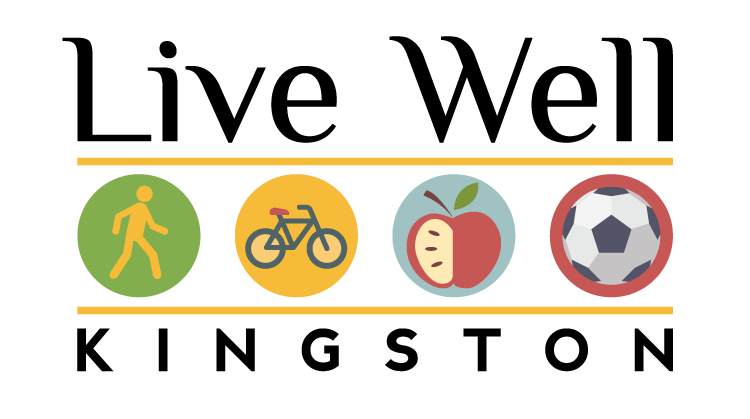

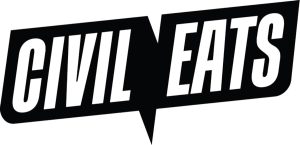
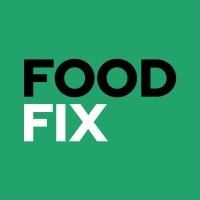
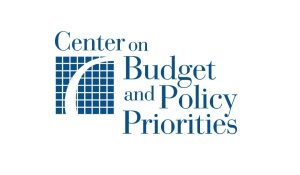
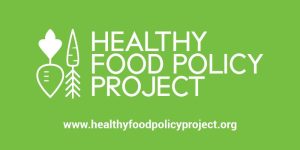


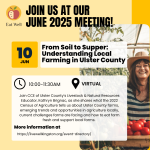
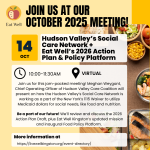
[…] If hearing about the positive impacts of SNAP and the potential cuts was interesting to you, she recommends checking out Food Policy Bites Issue 5, which lists a whole bunch of food policy resources: https://livewellkingston.org/food-policy-bites-issue-5/ […]